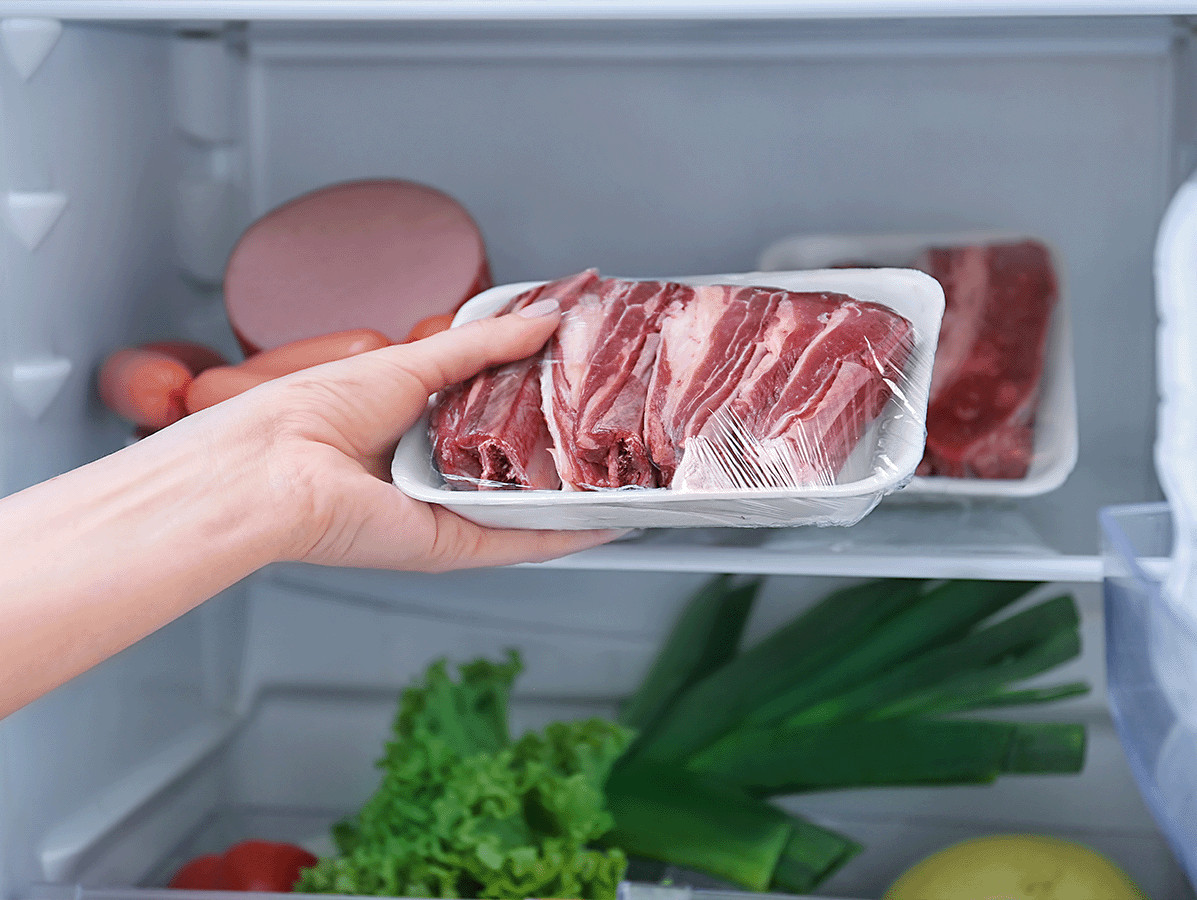
Increasing the price of meat in combination with information about the environmental damage caused by meat production and what people can do about it, results in a household buying 36% less meat per week. This has been shown by research conducted by RIVM and VU University Amsterdam.
A mere price increase (via a higher tax) or mere information before people enter the shop has little or no effect on the quantity of meat purchased in the supermarket.
For this study, over 500 participants did their weekly shopping in a virtual supermarket. This is a programme in which it seems as if the participant is walking around in a 'real' supermarket. These 'supermarket customers' were asked to do the shopping for the whole household for 7 breakfasts, lunches and dinners as well as snacks. They were also responsible for the weekly shopping in their daily lives. Some were confronted with 30% more expensive meat, information on the environmental damage of meat production and what they could do about it, or a combination of both. The rest belonged to the control group.
Participants who were confronted with a price increase on meat and information bought 386 grams less meat per household per week (36% less). The other groups bought a little less or hardly any less. Only a higher price led to 144 grams less being bought, while information alone about the environmental damage of meat production and what they could do about it had no effect. The RIVM and the VU University Amsterdam therefore conclude that increasing the price of meat together with information led to the greatest reduction in meat sales.
Source: RIVM